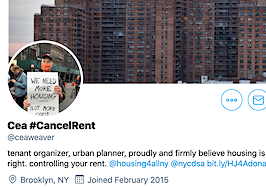If it’s January, it’s Agent Appreciation Month at Inman. Join us all month to celebrate all that agents do, and come together with us virtually at Inman Connect, Jan. 26-28. Craving total access? Take advantage of our Agent Appreciation Sale and save 50% on your Select subscription.
After 300 days, the fun is gone.
When the coronavirus pandemic began sweeping the U.S. last March, no one knew what was going to happen. Restaurants closed their doors, travel ground to a halt and masks became ubiquitous. Real estate, too, took a hit, with things like open houses and in-person showings becoming illegal in many places. In some states such as New York, it effectively became impossible to sell homes.
All in all, everyone hunkered down for what seemed like a potentially limited period of isolation.
And then that period dragged on. And on and on.
And it’s still dragging on today, 300 days after quarantining began for millions of Americans on March 16, 2020, when President Donald Trump urged the avoidance of gatherings of more than 10 people while restricting discretionary travel, but stopping short of official stay-at-home orders. Meanwhile, on that day at least a dozen states ordered businesses and schools closed and urged Americans to quarantine.
Many real estate agents ultimately had a good year, financially speaking, in 2020. After initial restrictions loosened somewhat, buyers raced back to the market thanks to low interest rates and new work-from-home policies.
But despite the financial numbers, agents who spoke with Inman this week said their work remains fundamentally changed. They’re still conducting business remotely. They still have coronavirus clauses. They’re still wearing masks.
Some of these changes, such as the move to adopt more technology, have been welcomed. But more than one agent who spoke to Inman said that despite the digital progress and strong sales, something is now missing. The fun has gone out of the work.
The digital shift
The pandemic most obviously forced the real estate industry to go primarily online. The agents who spoke with Inman said that shift is still going strong and they have not resumed meeting face-to-face in many situations.

Angela Morsa
For instance, Philadelphia Compass agent Angela Morsa said she recently went into the office “for the first time in months.” And she only dropped in because she was preparing a listing presentation for a client who doesn’t have a computer — an exception to the rule these days.
In general, Morsa meets with her clients virtually and her team holds two online gatherings per week using Google Meet.
“It’s a way for us to be social together in a way we can’t be in person,” she explained. “Everything we’re doing is virtual.”
Morsa’s team is also not doing open houses. The idea is that they don’t want to spread the virus, and many clients still don’t want large groups of strangers in their homes.
“With the market being the way it is we don’t need to do open houses anyway because things sell so fast,” she said.

Caryl Berenato
Caryl Berenato, a Compass agent in New York City, is also not holding open houses. And like Morsa, she is mostly interacting with clients via electronic devices.
“I’ve done a number of deals with people I never met, or people I met only for the final walk through,” she told Inman. “We did everything online. It allowed me to connect with people in a different way.”
Berenato said buyers, who might have liked to casually visit open houses on Sunday afternoons, might miss the old open house scene. That scene may come back once the pandemic subsides, though Berenato added that she’d be interested in seeing open houses morph into by-appointment-only engagements in the future.
In any case, though, all of the agents who spoke with Inman for this story agreed that real estate took a dramatic digital turn early in the pandemic and it probably won’t ever go back to the old analog normal.
The world COVID wrought
The digital shift may be the most obvious impact of the pandemic on real estate, but it’s far from the only one.

Teresa Boardman
For example both Berenato and Teresa Boardman — owner of Boardman Realty in the St. Paul, Minnesota area (and an Inman contributor) — described lasting rules about social distancing in enclosed places like condo elevators.
“You’ve got to take elevators one at a time,” Boardman said.
Boardman also said that COVID addendums — which allow buyers to back out of a sale if the outbreak impacts them — remain an option, though given the hot market buyers tend not to use them lest they be seen as insufficiently competitive.
In New York, Berenato said properties still get a wipe down after showings, and she brings a thermometer around with her. Before meeting with clients she lets them know they have to follow social distancing protocols, and warns them they might get a temperature screening as well.
“If someone has a temperature over 99 degrees we will reschedule for another day,” Berenato said. “I don’t want to be the reason that someone gets sick, or someone’s grandmother gets sick. I want to be safe.”
Wipe-downs are also still common in Connecticut, where Linda Fercodini owns and operates Fercodini Properties.

Linda Fercodini
“All my agents carry wipes with them,” Fercodini told Inman. “We don’t go into a house without either gloves or wipes.”
Fercodini added that everyone also has to wear booties on their shoes during a showing.
In recent months, she has also occasionally worked with people who don’t use technology. When those clients need to sign papers, they do it out in the parking lot, leaning on the hood of a car, rather than inside where exposure might be more of a risk.
All of which is to say that for Fercodini — who has lost multiple friends to COVID-19 — practicing real estate now means paying constant attention to any way that agents and clients might accidentally contaminate each other.
And of course, everyone who spoke to Inman said masks are ubiquitous in their areas.
In Philadelphia, the pandemic has also driven demand for something resembling pocket listings.
Morsa said that a popular option among her clients has been to list homes exclusively on Compass.com for a set period before marketing them more widely. Despite a recent crackdown on pocket listings, Morsa said her multiple listing service, Bright MLS, has an option that allows agents to list their properties on their own sites before they get distributed more widely. And while pocket listing-type strategies have always been popular at the upper end of the price spectrum, Morsa said they’ve now become more appealing at other price points because it means sellers potentially have less in-person contact with strangers.
“It’s a service to our clients because they don’t want dozens of people in their houses right now,” she said.
The number of small changes to real estate rules and practices could go on.
But the take away here is that the shifts taking place during the pandemic aren’t just restricted to moving everything online. Instead, there’s an array of smaller changes related to cleaning, contracts, personal space, masks and more that have profoundly altered industry professionals’ experience. And all these months into the pandemic, those changes currently show no sign of going away.
“It’s a whole new way of showing real estate and doing business,” Fercodini said. “It’s a totally different way.”
The good, the bad and the outbreak
Some of the changes the pandemic is forcing on the industry have been long in coming — and potentially good. Berenato, for example, was appreciative of the shift toward a more digital world and said it has actually helped modernize the industry.
“What this pandemic did was force our business forward 10 years, technology wise,” she said. “It was kind of a blessing, not that I would have ever wanted it to be.”
Still, on a more metaphysical level, some agents expressed ambivalence about their work environments — despite the industry’s strong recovery last year.
“It’s not as much fun, because we’re all so cautious,” Fercodini concluded.
She added that fear among consumers about opening their homes also seems to have sent inventory plummeting.
“I’ve been doing this for 42 years and I have never seen such a shortage of housing,” she added.
That inventory shortage came up more than once in conversations for this story, and appears to be contributing to a sense of strain for others as well. Morsa, in Philadelphia, said that there is only 1.7 months-worth of supply in her area, which she described as “horribly low.” That means constant bidding wars, brutal competition and clients who simply can’t find housing. That’s not the way she’d like the market to be.
“This is not fun,” she said. “This is not fun for anyone.”
Boardman too indicated something appears to be missing right now. She has long had a home office and is used to doing things online, but added that she liked showing houses and meeting with people. The best parts of her job, in other words, are the ones that have been lost.
“It seems like all the fun parts of my job were taken away,” she told Inman. “What’s left is okay but the job isn’t the same.”
The good news, however, is that since last March people have adapted. Berenato said consumers seem to be less fearful now than they were, for example, and Morsa said that real estate professionals have learned they can work through the outbreak.
“I don’t think anybody is waiting any more for this to pass,” she said.
The crisis also isn’t going to last forever. Like others, Fercodini said that some changes will be permanent — she plans to bring gloves and wipes to listings even after the pandemic — but even so she remains upbeat about the future.
“We are extremely optimistic,” she said, “that there is a light at the end of the tunnel.”






